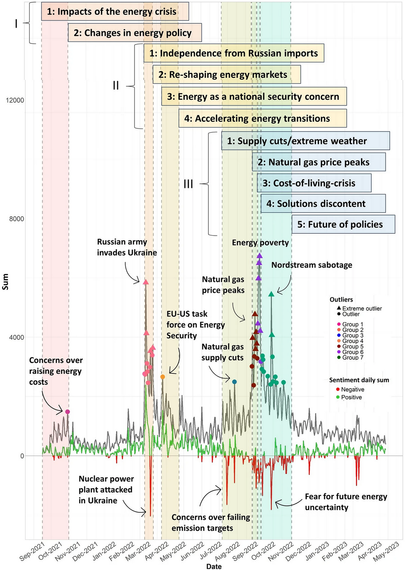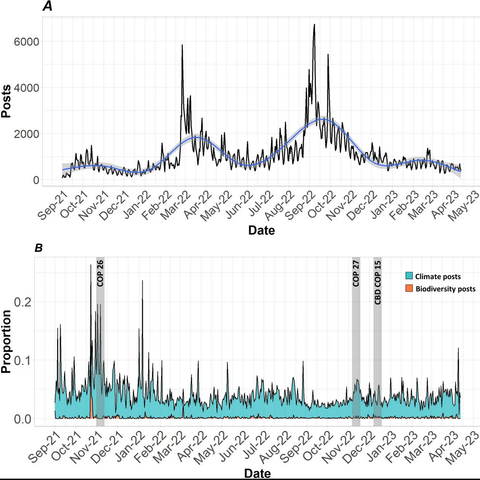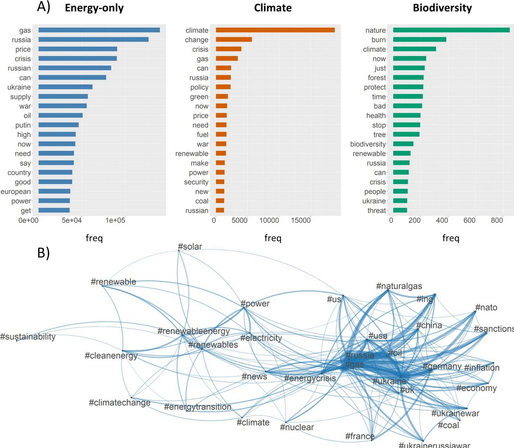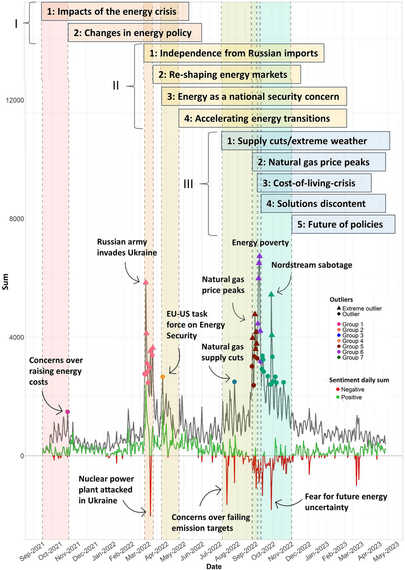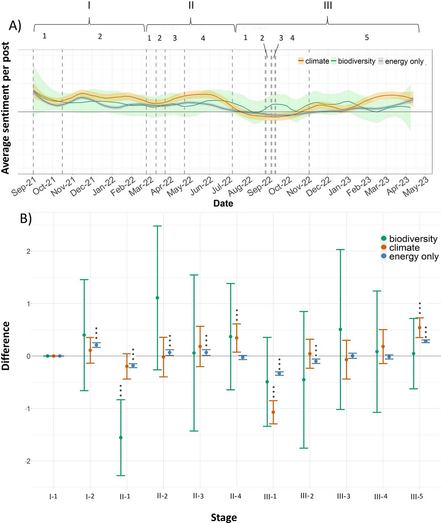✨ ✨ FRESH ARTICLE OUT ✨✨
Our new work on the role of #ClimateChange and #BiodiversityLoss in online discussions about the European #EnergyCrisis from 2021 to 2023 with @annahaus, myself, @tuuli and Gonzalo Cortés-Capano.
Our results have several implications for #SciComm and #PolicyMaking related to #sustainability #climate and #biodiversity.
📜 The article is here: https://doi.org/10.1007/s11625-025-01639-1
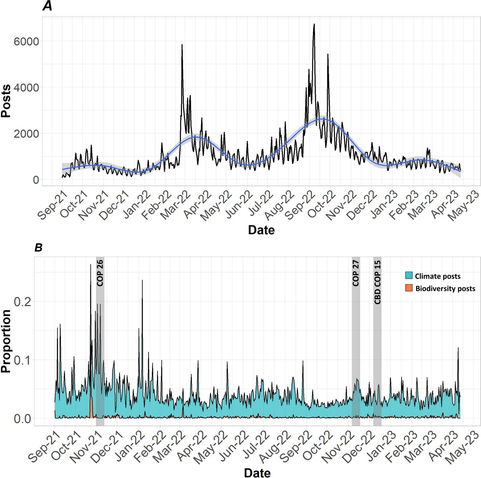
Climate and biodiversity perceptions amid the European energy crisis: shifting social media narratives - Sustainability Science
Public support for addressing the sustainability crisis is crucial for mainstreaming environmental issues into policymaking. Recently, escalating impacts of an energy crisis have sparked debates over European energy governance, influencing policymaking on climate and biodiversity goals. Understanding how public attention towards climate and biodiversity is mediated by social media during crises can provide insights into the processes of public opinion formation. We investigated the attention patterns, narrative shifts, and sentiment regarding climate and biodiversity concerning European energy governance on X (formerly Twitter), between 2021 and 2023. We employed the issue–attention cycle framework and combined quantitative methods with qualitative thematic analysis. We found limited attention on climate and biodiversity in European energy governance, suggesting low engagement with the interconnected dimensions of the crisis. Climate and biodiversity issues were mainly linked to energy governance in relation to the transition from fossil fuels to renewables. Attention fluctuated over time following three waves of salient themes: the unfolding energy crisis, geopolitical instability, and socio-economic concerns. Geopolitical events elicited a sense of urgency for accelerating the energy transition. However, socio-economic events (high energy prices) aroused critical views towards the transition, reflecting emerging discourses against decarbonization in the EU. Limited attention to climate and biodiversity on social media may reinforce the perception that these issues are unrelated to energy governance, driving public support towards uncoordinated, even contradictory, sectorial policies. The construction of saliency around polarized framing on social media may push opinions against environmental policies on energy governance, challenging the reconciliation of environmental, economic, and social imperatives of sustainability.
